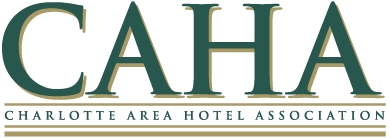The competition for talent is on as more restaurants stake out their place in Charlotte’s fast-growing dining scene. A shallow labor pool is driving up wages and causing restaurateurs to re-examine benefits and perks to retain employees — all at the cost of the bottom line.
“People are really struggling to fill basic-level positions,” says Kris Reid, executive director of the Piedmont Culinary Guild. “There’s just not enough bodies.”
Reid herself formerly worked as a chef.
The guild works to promote 248 local chefs and farmers, encouraging them to showcase the flavors of the Piedmont by keeping their supply chain local. But rising employment costs are taking a toll on that effort as restaurants balance customer expectations for quality with pricing pressures.
A search of Indeed.com produced more than 4,000 restaurant job opportunities here, with options available from fast food to upscale dining.
Operators are going to be forced to think outside the box on hiring, Reid says. For example, the guild is exploring community dinners instead of traditional job fairs with a goal of highlighting food and beverage as a fun, community-based industry.
“We’re sort of in a labor crisis. Everyone really is struggling and trying to find a solution,” Reid says. Currently, 38% of all restaurant operators nationwide report recruitment and retention of labor is a top concern, says Hudson Riehle, vice president of research for the National Restaurant Association. “With a growing number of restaurants, obviously the underlying labor supply has tightened,” Riehle says.
One out of every 10 jobs in the United States is in the restaurant industry where employment is expected to top 15 million in 2018.
Hiring has always been a challenge. Now, that’s heightened by increased competition for employees and a shift in workforce expectations, says Frank Scibelli, founder of FS Food Group.
For example, these days it’s harder to find employees who want to work nights and weekends while missing time with friends and family.
“We’re trying to get more progressive because it’s not going to go away,” he says.
His Charlotte-based restaurant group employs roughly 500 at Midwood Smokehouse, Paco’s Tacos & Tequila, Yafo Kitchen and Mama Ricotta’s.
Wages are up about 10% in the past few years. The company has added perks such as a 401(k) program, paid vacations, meals and discounts to sister concepts to help attract talent.
FS Food Group has a progam that pays prospective employees to come in for the day and shadow staff.
“We want it to be a fit our way as well as theirs,” Scibelli says.
He’s seen that new staff requires more training and better communication. Employees learn early about paths to potentially advance their FS Food Group careers, he adds. “It’s not all glamorous work,” Scibelli says. “It’s a tough job. But the people who love it here stay forever.”
It doesn’t hurt that wages in the restaurant industry have risen faster than anywhere else in the private sector, Riehle says. That gives employers another tool to increase recruitment odds and retain staff.
That wage growth is backed by Indeed’s job listings. Job posts with wages listed topped North Carolina’s minimum wage of $7.25.
The soon-to-open Brewers at 4001 Yancey is looking for line cooks, prep cooks and dishwashers. The pay? $10 to $14 an hour. DeSano Pizzeria Napoletana had listings in the $12-to-$15 range for bartenders and servers. And Eddie V’s in uptown was offering up to $18 an hour.
An experienced line cook at the soon-to-open Superica can earn up to $20 an hour, says Andy Palermo, senior general manager at Ford Fry Restaurants’ Tex-Mex concepts.
The Atlanta-based company enters the Charlotte market later this month with a 7,000-square-foot restaurant in South End.
But it’s not all about the pay. Full-time employees are eligible for paid-time off, health benefits and other perks. There’s also a path for development and growth within the company, Palermo says. “People are interested in hearing what’s in it for me. We’re really strongly committed to creating a great working experience for them.”
He says well-themed job ads and targeted recruiting trips were key in lining up staff. Superica will have up to 110 hourly employees.
Duckworth’s Kitchen & Taphouse recently revamped its Park Road location. A trimmed-down menu and new seating layout helps increase functionality in the kitchen, says Kevin Stevens, district manager and operating partner for Duckworth’s.
It also makes it easier to deal with staffing challenges.
Gone are the days of applicants walking in the door in search of a job. Stevens says that for every 17 contacts he gets off a job board, one applicant may show up for an interview. “You can definitely tell there’s a change in the workforce. It will be interesting to see how it evolves.”
A recent Duckworth’s ad offers to pay $1 more an hour if an employee brings employment verification. It also gives employee bonuses for referring new hires. “That’s pretty much how competitive it has gotten. You really hate to steal someone from someone else,” Stevens says.
H.P. Patel, co-founder of Tandur Indian Kitchen, says his biggest challenge was lining up a staff while still under construction in SouthPark. “Labor is tight. Employees don’t want to wait for construction to end. They want a job now.”
Tandur invested more than $1 million into its first location here, which opened last month.
The fact this is a new concept to market exacerbated the challenge. Tandur aims to make Indian cuisine more mainstream, but that comes with its own issues. “People can’t wrap their head around an Indian restaurant, fast casual and how does this all work,” Patel says.
Hourly positions can pay up to $12, depending on position, with tip sharing as well. But he says creating a culture for employees is most important.
Having a fun work environment can help staff deal with busy times and improve the overall customer experience, too. “If you’re having fun, it’s a completely different experience,” Patel says.
The Restaurant Association’s Riehle says it is critical to deliver on the dining experience as consumers spend more food dollars eating out.
Today, roughly 48% of the food dollar is spent in restaurants — up from 25% in 1955.
“If that last restaurant experience for the patron doesn’t meet their value received for price paid, then they can be quite quick to vote with their feet,” he says.
Operators are forced to balance rising wages with customer expectations and the bottom line.
Restaurateur Jon Dressler estimates he’s paying staff up to 30% more than five years ago.
“Wages have increased — and we like that,” he says.
His Rare Roots Hospitality Group employs roughly 250 workers across five restaurants. His most recent venture, Fin & Fino, opened last month in uptown.
Dressler and wife Kim invested more than $1 million into the social seafood house concept.
He concedes higher wages are not good for the bottom line, but restaurant workers have been underpaid for years. Too often the restaurant industry is seen as a stepping stone instead of a career, he adds.
“We provide a real job. We work real hours, we make real money,” he says. “The restaurant world is a passion. It’s something that’s in your soul, your fiber, your being.”
Dressler says he’s escaped many of the pitfalls tied to hiring by creating a culture that puts family first and inspires loyalty. Current employees can vouch for potential hires — a recommendation Dressler takes to heart— and management is promoted from within when possible.
“Our growth has always been very strategic and centered around our people,” he says.
Operating multiple restaurants allows him to invest in training and set expectations in advance of a new restaurant’s opening. That translates in the hospitality, service and overall experience Rare Roots establishments can offer, Dressler says.



















